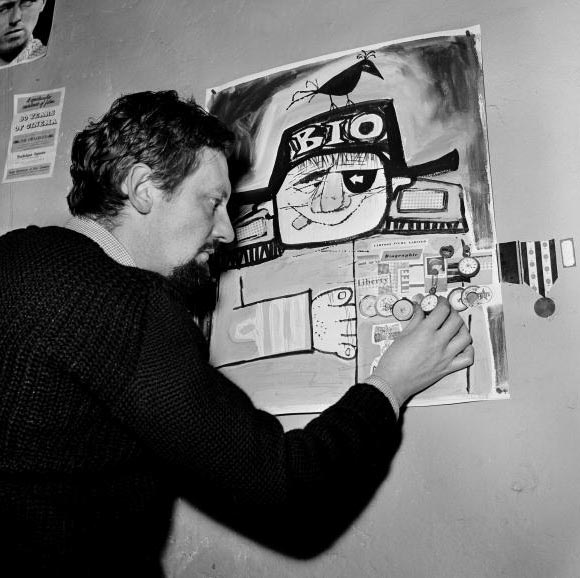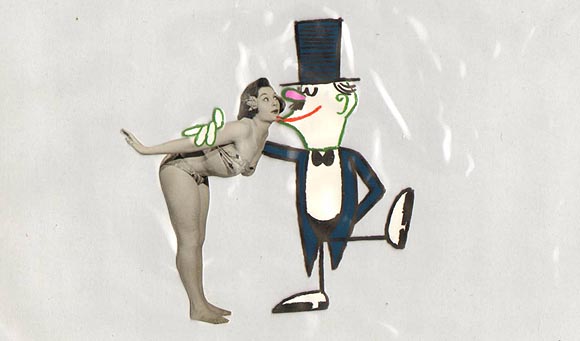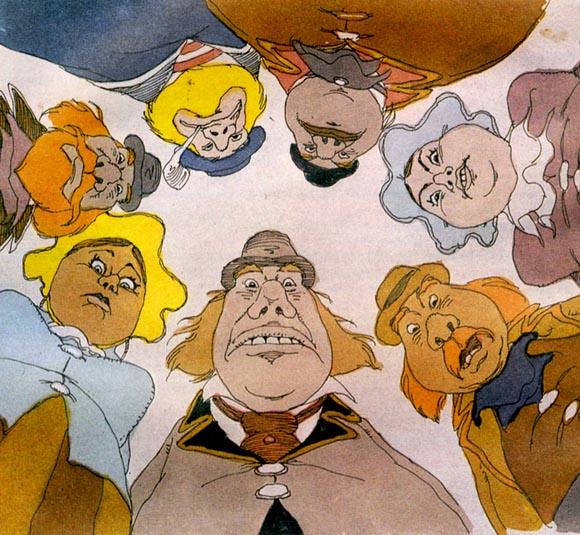

Bob Godfrey, RIP

British animation legend Bob Godfrey has passed away. We received a note from his grandson Tom Lowe this morning with the following sad message: “He passed peacefully in his sleep, on Thursday 21st February 2013, aged 91.”
Godfrey once told an interviewer that he considered his life a long-lasting ambition to make people laugh, and he did exactly that during an animation career that lasted over fifty years, spanning dozens of shorts films and TV series. In the process, he became the first British animator to win an animated short Oscar (for the short Great), and he also helped animation mature by exploring contemporary and adult themes in his work.
Born in Horse Shoe Bend, West Maitland, Australia on May 27, 1921, and raised in London, Godfrey attended the Leyton Art School. He began his visual arts career working in advertising. In the late-1940s, he began working at David Hand’s G. B. Animation, and helped create promotional items related to Animaland shorts. This led to his full-time entry into the animation field in 1950 at the modernist commercial studio W. M. Larkins.
 Still from “Polygamous Polonius” (1959)
Still from “Polygamous Polonius” (1959)
Godfrey left Larkins in 1955 to set up an independent studio called Biographic Films with partners Keith Learner and Jeff Hale. [UPDATE: Keith Learner has written a fine remembrance of Godfrey on the Guardian website.]
While at Biographic, Godfrey began making personal short films. Early efforts like Polygamous Polonius and Do It Yourself Cartoon Kit (1961), with their sharp satiric humor and quirkily designed cut-out animation style, were considered fresh for the time. The BFI Screenonline website says that these films, “display the range of influences and preoccupations that characterise his work—music hall routines, avant-garde comedy in the spirit of The Goons, political satire, and concerns with British attitudes to sex and social conduct.” Historian Giannalberto Bendazzi also notes that in these early films, “Godfrey comes out as one of the few animators to share some common traits with the Free Cinema of his contemporaries Lindsay Anderson, Tony Richardson and Karel Reisz.”
 Still from “Great” (1975)
Still from “Great” (1975)
Godfrey continued his career as a short filmmaker with a string of successful films including The Rise and Fall of Emily Sprod (1962), Alf, Bill & Fred (1964), Henry 9 ’til 5 (1970), Kama Sutra Rides Again (1972), an erotic-comedic short that Stanley Kubrick personally selected to accompany the UK release of A Clockwork Orange, and culminating with his ambitious Oscar-winning short-epic Great (1975), about the life of British civil engineer Isambard Kingdom Brunel.
In the mid-1960s, Godfrey set up his own studio, Bob Godfrey Movie Emporium, through which he not only produced shorts and commercials, but also began making a variety of children’s TV series, such as Roobarb (about the rivalry between a dog named Roobarb and a cat named Custard), Noah and Nelly in… SkylArk, and Henry’s Cat, all of which became beloved staples of generations of British children.
Godfrey also created the Do-It-Yourself Animation Show in the mid-1970s, a how-to series with weekly guests who included Richard Williams and Terry Gilliam. The show, which made animation accessible to the masses by taking the mystery out of the production process, was vastly influential and inspired an entire generation of kids in England, including Nick Park, who created Wallace & Gromit, Jan Pinkava, who directed the Pixar short Geri’s Game, and Richard Bazley, an animator on Pocahontas, Hercules, and The Iron Giant.
Enjoy this great BBC mini-doc about Godfrey from the early-1970s:
Further recommended reading about Godfrey:
Bob Godfrey interview from 1979
Obituary in The Independent
BFI Screenonline biography of Bob Godfrey

.png)